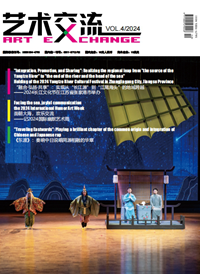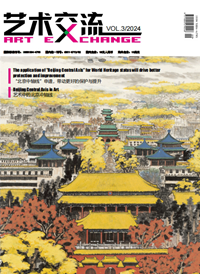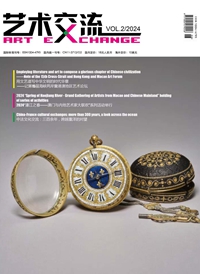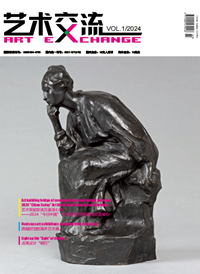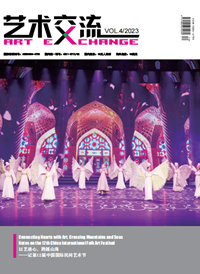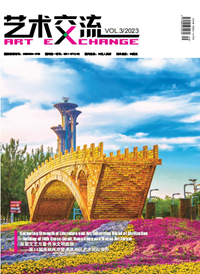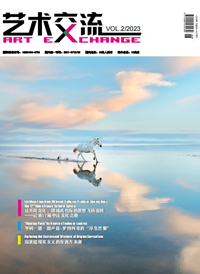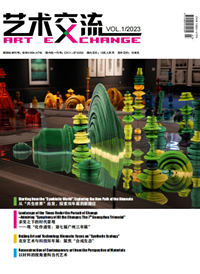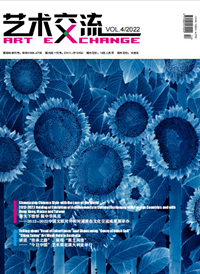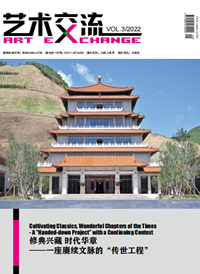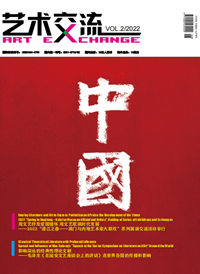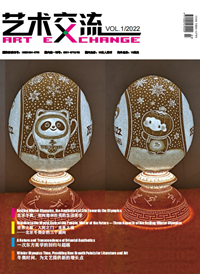TV Series in China
Art Exchange VOL.Art Exchange|ZHANG Bin
TV Series in China
Chinese TV Series in the 40 Years of Reform and Opening up
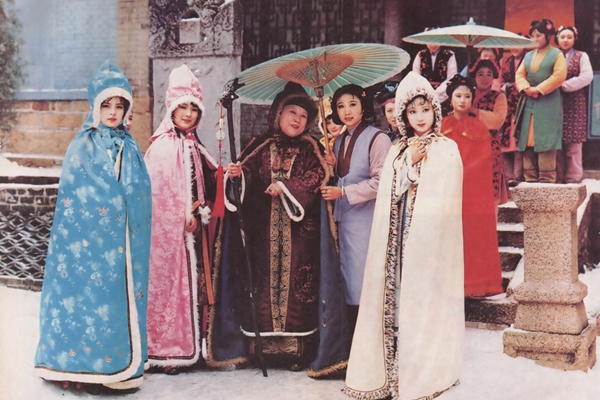
Stills of Dream of Red Mansions
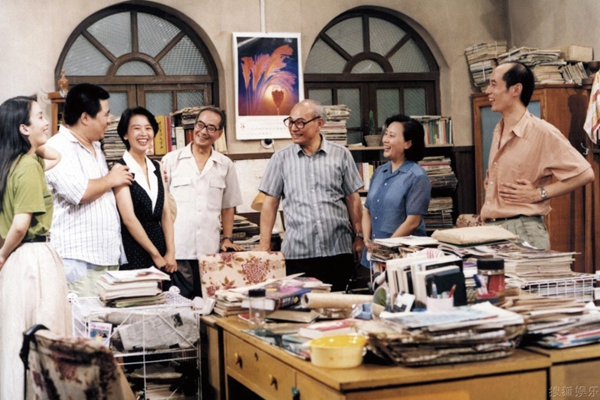
Stills of The Story of the Editorial Department
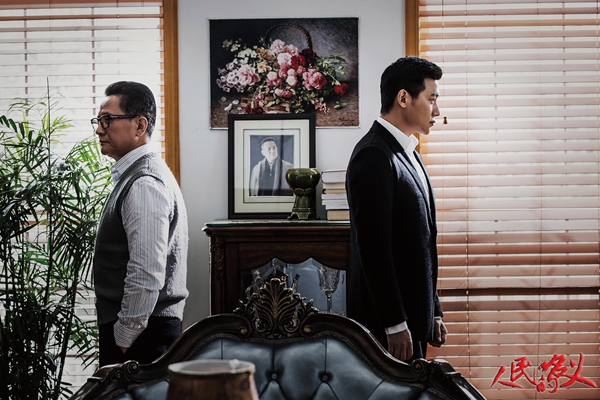
Stills of In the Name of the People
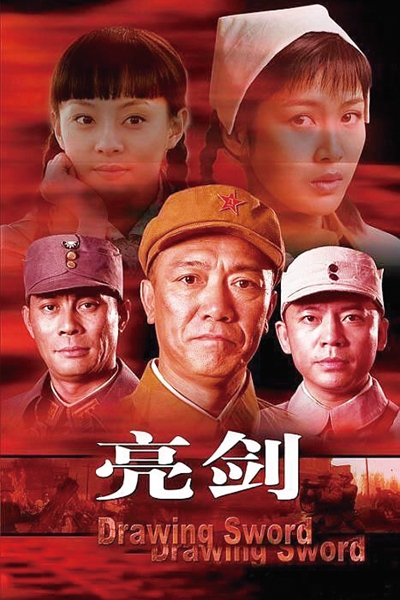
Poster of Drawing Sword
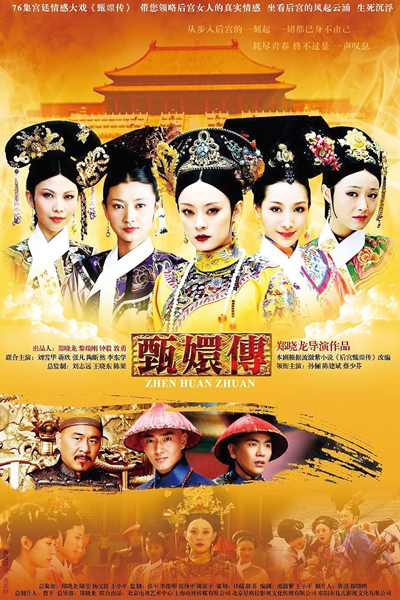
Poster of Biography of Zhenhuan
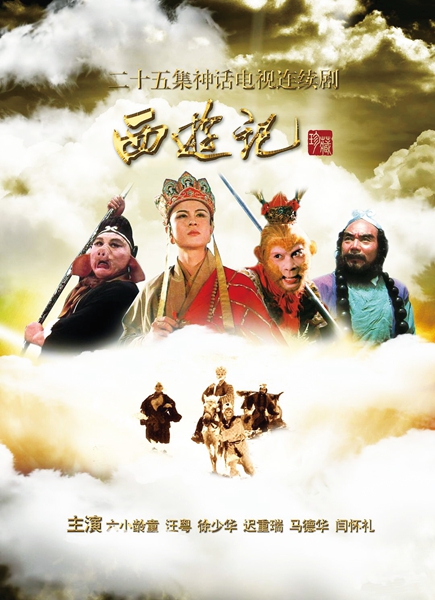
Poster of Journey to the West
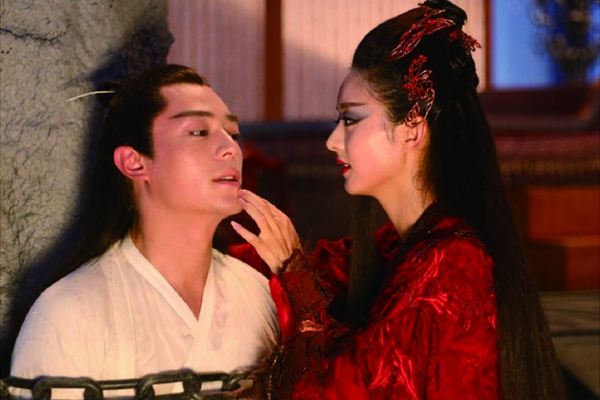
Stills of Hua Qian Bone
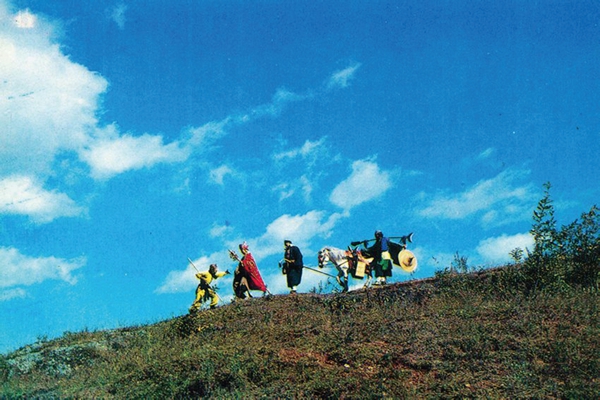
Stills of Journey to the West
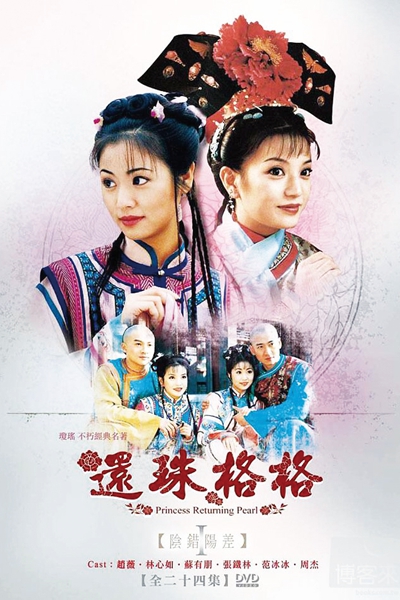
Poster of Huanzhu Princess
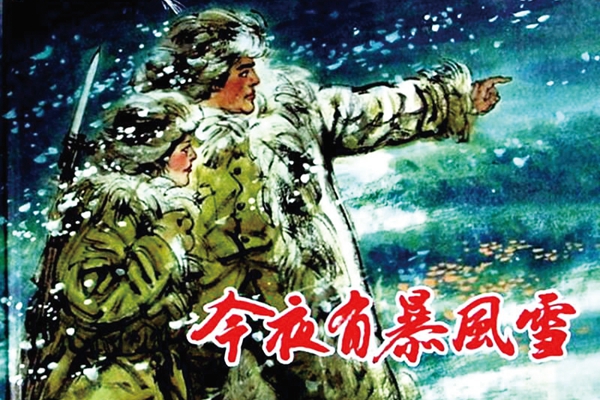
Poster of Snowstorm Tonight
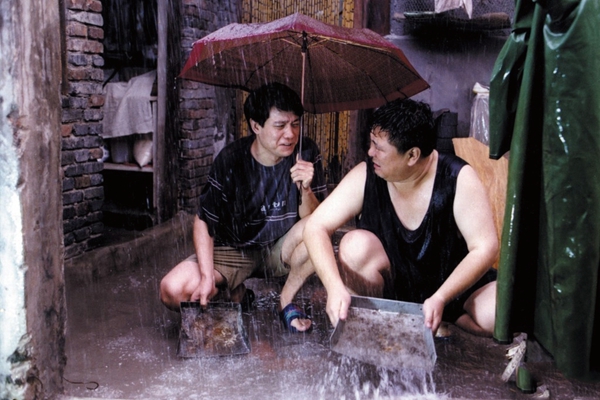
Stills of The Happy Life of ZHANG Damin
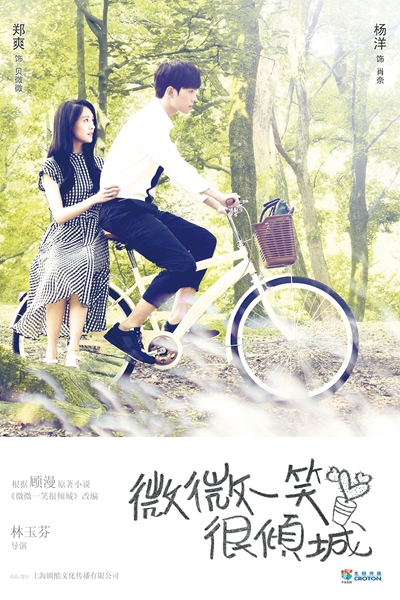
Poster of Beautiful Smiles
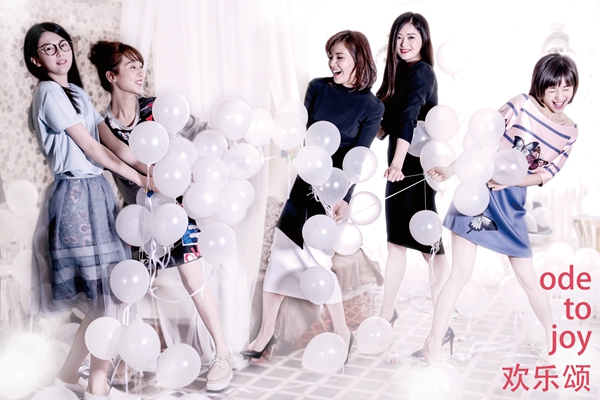
Poster of Ode to Joy
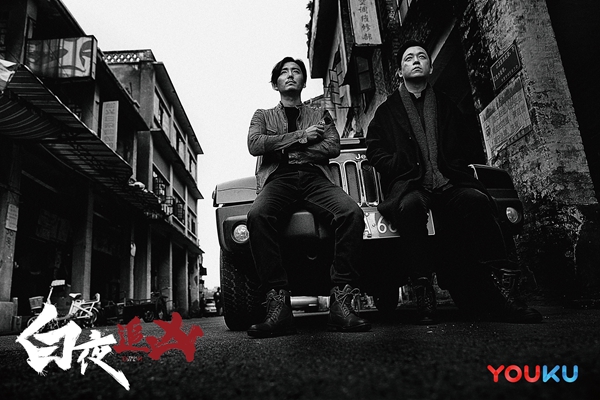
Poster of Day and Night
On June 15th, 1958, China aired the first TV drama One Piece of Cake , only one and a half months after the official launch of China's first television station. In the past 60 years, especially in the 40 years of reform and opening up, TV dramas have played an extremely important role in the spiritual and cultural life of the Chinese people. Meanwhile, they have also grown into the most important popular literary & artistic styles and cultural industry in contemporary China. Subjects concerning all historical traditions, revolutionary trends, process of reforms, contemporary legends, and stories about ordinary families and the country have been fully revealed in TV series. With times and TV dramas interacting with each other, they have built a magnificent image of contemporary China.
Transformation and Classic Conversion (1978 - 1989)
The reform and opening up is an all-round transformation of China's social, political, economic and cultural development direction. As a popular art form of "appealing to both refined and popular tastes", TV drama perceives and conveys the sound of this era, and, at the same time, quickly liberates itself from the single function of political publicity and begins to show its characteristics as an independent art style. At the beginning of the reform and opening up, TV drama have not yet been popularized. The shooting of TV drama was mainly based on a single episode, a short and medium-length popular drama. Although the annual output was not much, it still produced a batch of high-quality classics.
The "scar" and "reflection" TV dramas, such as Wasted Time and Snowstorm Tonight and others have exposed and accused the ten years of catastrophe on the physical and spiritual world of human beings and called for the return of humanitarianism. Although this kind of TV dramas about educated youth is based on the reality of suffering and the history of no-thinking, the final outcome of the story is, without exception, pointing to a bright and beautiful future, reflecting the common vision of TV drama art for the development of the times. The characters' history of spiritual growth in the play against the fate also shifts the TV drama from a macro historical narrative to a personal perspective. Such TV dramas Takeover of Director of Qiao, Voice of Female Reporters, New Star, Fences, Women and Dogs reflect the courage and enthusiasm of the public echoing the changes of times and society in the early days of reform and opening up. This type of reform-themed drama has laid a new type of relationship in the theme of the new era, broadened the expression of the TV drama themes, and jointly constructed the dynamic aesthetic consciousness space of TV drama as the mirror image of the times.
In 1980, the 9-episode TV series Eight Years in Enemy Camp broadcast by CCTV marked the birth of China's first TV series, indicating that Chinese TV series ushered in the creative aesthetics of the series as the dominant art form, and formed the first classic period of Chinese TV series in the adaptation of the renowned literary classics, and created the Four Generations Together, Dream of Red Mansions and Nurhachi, Journey to the West, The Last Emperor and other classic works enlightening the history of Chinese TV series. These repertoires have better inherited the historical and cultural connotations of classical literary works, and broken through the single-role-image constructed by previous TV series. By shaping the artistic images with pioneering consciousness and rebellious spirit, such as JIA Baoyu and LIN Daiyu, Nurhachi, and Monkey King, the outstanding cultural traditions and value pursuits of the Chinese nation have been artistically expressed, linking the personal destiny of the general public with the historical development of the nation, forming a realistic tradition of the narrative of the home country and greatly enhancing the cultural taste and artistic pursuit of the TV series, marking the beginning of the battle with the film with respective advantages.
During this period, foreign and Hong Kong and Taiwan TV series The Man Come from the Bottom of the Atlantic, Blood Suspect, Volleyball Women, The Legend of the Condor Heroes and Shanghai Beach also began to be introduced into the mainland, and caused a wave of drama heat around the country, creating a new kind of stimulation to people's ideas and the artistic concept of updating TV series, which have been more comprehensively reflected in the next period of TV drama development.
Popular Aesthetics and Multiple Types (1990-2010)
In the 1990s, the reform and opening up and the continuous advancement of the market economy have brought about the rise and flourish of popular culture. As TV became the top media in China, the popular cultural attributes of TV series are also emerging. In order to meet the growing demand for the drama from a large number of viewers, many TV series with clear market target audiences and revealing secular daily life came into being, which opened up the preliminary exploration of TV series from subject matter to type, and formed its own popular aesthetic pursuit in the Chinese art tradition and reference from foreign peers.
The indoor drama represented by Aspiration used the American soap opera mode to graft the Chinese family ethics narrative tradition, reflecting the atmosphere and spiritual needs of the times. Once broadcast, the effect of "incomparable ratings" was generated. The protagonists LIU Huifang, SONG Dacheng and others have also become hot spots for people to talk about at the time. The enthusiasm for Aspiration not only allows the audiences to appreciate the artistic appeal of popular drama, but also accumulates experience in forming stereotypes of creative ideas and independent aesthetics. Later, the popular dramas, such as The Addiction, The Happy Life of ZHANG Damin, A Mess, Loveand others are also, through the meticulous presentation of real life folds and the pursuit of plot and ethics, typically restoring the life and traditional ethics in TV series and arousing great resonance among the audiences. Beijingers in New York is facing the rising fever of going abroad at the time, focusing on the living conditions of overseas Chinese immigrants, directly attacking the Chinese people's mental journey and hard choices in foreign countries, and bringing closer the emotional resonance and culture of domestic audiences and overseas Chinese. While the I Love My Family and The Story of the Editorial Department employ the Western sitcom type to combine with Chinese comics and short act, opening up a brand-new creative mode and aesthetic paradigm of TV series.
Historical dramas fully prospered. The historical dramas, such as The Yongzheng Dynasty, Kangxi Dynasty and Towards the Republic are obsessed with the artistic restoration of history, forming a grand and serious narrative style, and causing a great momentum controversy due to the different artistic depictions of the emperors and historical participants. With the introduction of Story of Cixi and Story of Qianlong to the mainland, its bold handling of historical figures and stories inspired the new production of mainland historical TV series. Huanzhu Princess , Private Visit by Emperor Kangxi, The Prime Minister LIU Luoguo and others continued to emerge. The historical basis of these TV series is relatively thin, but the imaginary space of video art is fully explored to construct the plot. The real historical figures, such as Little Swallow, Qianlong, and HE Shen have been re-dramaticized, subverting and deconstructing the long-established historical dramas of "adhering to historical facts about big issues, unlimited control for small issues" creation concept, forming resonance with the post-modernization that was entering China at that time. In addition, a number of outstanding TV series, such as Huanzhu Princess, Journey to the West and Story of Qianlonghave been successfully exported overseas, opening a new era of cross-border exchange of Chinese TV series.
At the beginning of the 21st century, the prosperity of the market economy and the deepening of the entertainment culture promoted the continuous development of the film and television industry. Chinese TV series have significantly improved both in terms of output and quality, forming a TV drama map represented by themes concerning spy war, medical conflicts, business arena, chronographs, family and etc., and producing a large number of TV series reflecting the spirit of the times and conveying mainstream values: The Years of Passion Burning, Golden Marriage, WANG Gui and Anna and other family chronological ethics dramas, which have depicted the fate of generations and their emotional trend, showing the epitome of China's decades of historical development. The urban youth dramas, such as Pink Girl, Struggle, Who Controls My Youth, closely follow the pulse of the times, get rid of the "supreme love" fantasy, and observe the society of the living conditions and social experience of the public via the "post-80s" youth's confusion, rebellion and obedience to reality, letting the "post-80s" generations step onto the stage of the TV series art and gaining a proper status with a more vivid image of life.
The typed production of TV series is also constantly evolving and integrating to create new forms of artistic expression. Drawing Sword and Sky of History have escaped the narrative mode of the rigid anti-war drama through the growth experience and character image of revolutionaries, such as LI Yunlong and JIANG Daya, as well as the new description of the relationship between the two armies. The Secret Plot uses the confusing plot and exciting suspense setting to show the struggles and balances between the characters, and the audio-visual language also updates the usual way of the general spy war drama, making it become more mature with continuous development in the TV series. This type has also led to the continuous emergence of dramas, such as Hidden and The Cliff. The red youth/military dramas Soldier Assault, My Youth in Yan'an, Youth etc., incorporate the modern military/revolutionary history into the current narrative context, and reposition the characters in the modern temperament, highlighting the inner inheritance and continuity of the revolutionary historical spirit and the contemporary military style. The family dramas The Great Mansion, The Dye House, Qiao Family Courtyard and the historical dramas Hanwu Emperor, Great Ming Dynasty 1566, Great Qin Empire and The World Granary also write about family history and major historical events in a personal manner, forming a benign interaction between epic narrative and life-style writing. This re-understanding and creation of the grand theme not only guarantee the basic truth of historical facts, but also make full use of the imagination of art to make the audience have a strong sense of drama participation.
The prosperity of popular culture in the 1990s provided the market and cultural context for the development of TV series, which have responded to the real needs of the audience, and described the secular daily life of the public and the shaping of new artistic images with the ever-evolving and diversified types. Meanwhile, it has also formed the appearance of the TV series culture in this process.
Media Convergence and Story Innovation (2010-2018)
After 2010, TV series also shows the imagination and cultural integration of the Chinese story in the new era via the dialogue with the online drama in the face of the brandnew social interconnected ecology and the emerging cyber culture.
Media convergence not only opens up new industrial development space, but also brings new subject matter and
narrative types to Chinese TV series. Through the dramas represented by Palace, Step by Step and the narrative routine formed by the protagonists' travel through different time and space, it breaks the characteristics of the simple unity space of TV series in the past, and "leads" the audience into a multimixed time and space to experience new story scenario. The TV series, such as The Legend of the Sword and the Chivalrous Man, Hua Qian Bone and Legend of Ancient Swords have realized the cross-border interaction between the games and the TV series, forming an aesthetic form with a new martial arts temperament, but under the circumstance of market and capital, the later IP fantasy dramas, such as The Heavenly Man and Zhu Xian also have issues of unchanged character images, the chaotic structure of the narrative, the ridiculous
and bizarre question of the story logic, and the energy of the fantasy drama is rapidly dissipated.
Compared with TV series with post-modern flavors, such as time-travel and fantasy dramas, the reality theme is more colorful. The chronology Parents' Love, The Days of Bringing Together, Courtyard with Love, Chicken Flying to Heavenand other life stories relying life stories on different eras, above the rough life depicted by realistic aesthetics, are also full of spiritual orientation of romantic aesthetics, with the protagonists in the drama often facing the confusion of life with an optimistic and free-spirited attitude. Responding to the reality presented by the chronology is the urban ethics drama. In the past few years, Double-sided Adhesive, Naked Marriage Era, JIN Tailang's Happy Life and so on focused on the contradictions and conflicts in contemporary family relations, Ode to Joy and My First Half Life attached more attention on women's independence and identity affirmation and other more acute social issues, leading to continuous attention and interpretation by the audiences. Anticorruption dramas, such as In the Name of People and The Court in the Sun returned to the screen and set off a wave of heat. In particular, the In the Name of People combining with the skillful audio-visual art means and the wonderful performances of the performers with the bold plot setting has triggered the interaction of different intergenerational audiences' participation, also forming an in-depth discussion of the topic amongst the public in the process of watching the drama. At the same time, TV series such as The List of Langya, In the Name of people and Biography of Zhenhuan, through reference and creation, combines new forms of image expression with local stories to form a "common value" and artistic aesthetics that can be shared amongst different cultures, making them accessible to further overseas spread, thus conveying Chinese cultural values and enhancing China's soft power of culture.
Another important change brought about by media convergence is the emergence of youth culture associated with online media. The TV series is also driven by the incubation of network IP, forming the connection and transformation of mainstream culture and youth subculture. Many TV series have added the aesthetic elements of popular culture to meet the aesthetic needs of the Net Generationaudience. The Remaining Sin and White Night Pursuit use the rigorous logic of exploration introduced from the West, telling the story of Chinese local criminal stories with high-intensity and brain-burning plots, and refreshing the height of Chinese criminal drama. My Sunshine, Shanshan is Coming, Beautiful Smiles and other IP-edited youth dramas and The Best of Us, To Our Simple and Beautiful Life, Hello, Old Time and other online youth dramas, through the interspersed and blended interaction between different dimension cultures, as well as the absorption of network temperament, such as "sweet pet" and "cute", realized the "rejuvenation" of youth drama. The spy war dramas, such as Sparrow, Rouge, Decryption and Red Rose reinterpret the heroic deeds of the revolutionary era with the mixed mode of "idol" + "sentiment" + "history", but there are also problems concerning excessive idolization and lack of historical authenticity.
In addition, dramas such as Biography of Zhenhuan, Biography of Ruyi and Story of Yanxi Palace have continued the law of the "phenometic level" of the Qing Dynasty drama. Although this kind of palace drama, which was adapted through the Internet IP, is labeled as a serious type, it is actually dispelling the grand narrative and classic tradition of the "serious" drama. Through the drama of the female protagonists, Zhenhuan, Ruyi, WEI Yingluo and other heroines' complex entanglements in the "growth" and "revenge", forming a strong "cool feeling" in watching the drama, the dramas over-emphasis on conflict and the character's one-sidedness, its artistic and ideological nature also have been consumed in the battle of the harem.
In the past 40 years of reform and opening up, Chinese TV series have been resonating with the pulse of the times, moving from time to time, changing and welcoming the times, and depicting the colorful Chinese stories in the process of reform and opening up in a multi-dimensional way. Through its in-depth thoughts and independent and diverse artistic pursuits, it has created a large number of classic works. In the new historical era, Chinese TV series should continue to tell the Chinese story and become an important way for Chinese and even the world's audiences to know and understand the Chinese spirit, values and the path.
Copyright © 2011 CFLAC Corporation, All Rights Reserved



